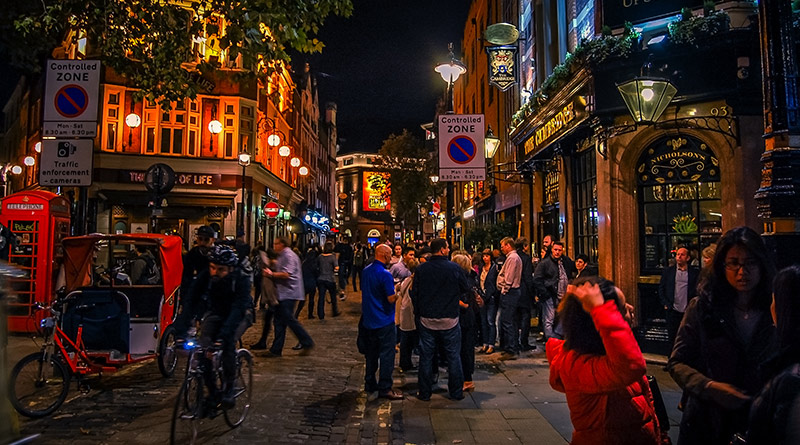Night Time Economy Faces Growth Slowdown Amid Rising Costs & Tax Increases

The Night Time Industries Association (NTIA) and CGA by NIQ have launched a quarterly Night Time Economy Market Monitor. This new report series highlights the economic impact, challenges, and evolving consumer trends in the hospitality industry.
The New Night Time Economy Market Tracker Report highlights both resilience and significant challenges in the UK’s night-time economy. While consumer spending has shown growth similar to pre-COVID-19 levels, the overall pace of recovery has slowed, underscoring the ongoing difficulties faced by the sector.
The NTIA is calling on policymakers to recognise the fundamental role the night-time economy plays in the UK’s broader economic and cultural landscape and to take decisive action to safeguard its future.
Key Growth Trends:
-The Night Time Cultural Economy has shown a stronger growth rate of 3.2%, outpacing the total market growth of 2.3%.
-Despite this, growth across all sectors has slowed since 2023, emphasizing the broader economic pressures on the industry.
Gross Value Added (GVA) Insights:
-GVA, a key measure of industry productivity used by HM Treasury and economists, indicates stagnation across the leisure and night-time economy subsectors in 2023.
-Rising business costs, including labour, food, and drink, have significantly impacted profitability despite increased consumer spending.
Employment Trends:
Employment in the UK’s night-time economy showed slight overall growth in 2023, demonstrating resilience. However, employment in key areas saw sharp declines:
i)Licensed club employment fell from 88,300 in 2022 to 68,200 in 2023.
ii)Pub and bar employment dropped from 540,400 in 2022 to 474,300 in 2023.
-Conversely, jobs in sporting venues, clubs, and gyms grew significantly from 409,900 in 2022 to 452,800 in 2023, indicating a shift in leisure employment dynamics.
Overall Market Performance:
-Pre-2020 Growth: The Out-of-Home Culture & Leisure Economy saw steady annual growth of 2.8% to 6.4% between 2010 and 2019.
-Pandemic Impact: A severe contraction in 2020 saw a 37.2% revenue decline, with the Night-time Economy plunging 42.2%.
-Post-Pandemic Recovery: Strong rebounds in 2021 (28.9%) and 2022 (34.4%) restored much of the sector’s lost ground.
-2023-2024 Stabilisation: Growth slowed to 4.5% in 2023 and 2.3% in 2024, signalling market stabilisation.
Sector-Specific Highlights:
-The Night-time Economy remains the largest segment, reaching £153.91bn in 2024, with growth slowing to 2.5%.
-The Day-Time Economy saw modest growth, reaching £69.6bn in 2024 with a 1.8% increase.
-The Night-time Cultural Economy reached £42.71bn in 2024, maintaining a 3.2% growth rate.
-The Out-of-Home Culture & Leisure Economy employed 3.16 million people in 2023, showing long-term growth despite fluctuations.
-The Night-time Economy reached 2.11 million jobs in 2023, while the Night-time Cultural Economy employed 471k.
Key Takeaways:
-The UK’s night-time economy remains a major economic force, but growth is slowing due to rising operational costs.
-Despite a post-pandemic rebound, employment figures in key areas such as pubs and clubs have declined, highlighting structural shifts within the sector.
-The industry continues to demonstrate resilience, but economic pressures require urgent attention to sustain long-term growth.
Michael Kill, CEO, Night Time Industries Association said:
“The findings of this report clearly illustrate the immense challenges our sector continues to face. While the night-time economy remains a £153.91bn powerhouse, we cannot ignore the fact that growth is slowing and operating costs are rising at unsustainable levels. Many businesses, especially small medium enterprises and the cultural sectors, are struggling to maintain profitability despite consumer demand.”
“Adding to these concerns is the uncertainty presented by the impending tax increase cliff edge, the rise in National Insurance contributions for employers, the increase in the National Living Wage, and the reduction in business rates relief. With no sign of a U-turn on these critical policy changes, the financial burden on businesses is set to increase further, threatening jobs and “livelihoods across the sector.”
The decline in employment across vital sectors such as pubs and clubs is deeply concerning, signalling the need for urgent government intervention and support. If these pressures are not addressed, we risk losing critical elements of our cultural and social infrastructure.”
“We call on policymakers to recognise the fundamental role the night-time economy plays in the UK’s broader economic and cultural landscape and to take decisive action to safeguard its future.”
Reuben Pullan, Senior Insight Consultant, CGA by NIQ:
“The value of the night time economy cannot be overstated, not just for the financial throughput it generates, but also the cultural richness that it brings to consumers’ lives.
However, the industry is under threat. The COVID crisis and relentless pressure on costs have created enormous challenges for hospitality businesses in the last five years, and late-night clubs and bars have been hit hardest of all. However, many other segments have been remarkably resilient, and the growth in new types of venues like competitive socialising bars shows the evening economy isn’t disappearing—it’s just changing. With the right support from the government, night-time businesses can power not just hospitality but Britain’s economic growth and job creation.”
